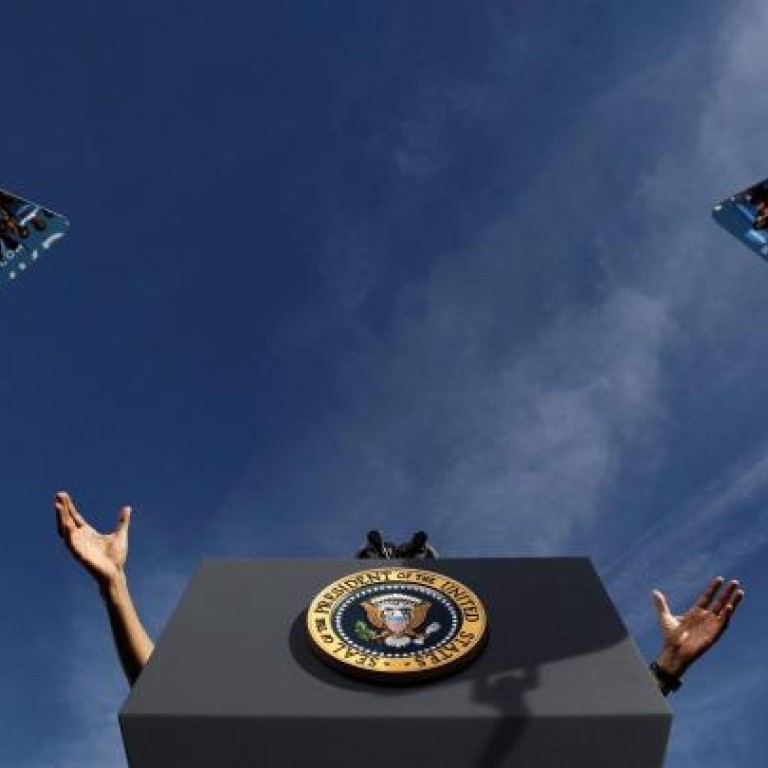
Outcome of Obama-Romney race looks less certain
A few tipsters are predicting landslides either way, but deep inside the Obama and Romney camps the future has never looked less certain
With just a few days to go before the US presidential election, it is neck-on-the-block time.
All manner of hard-bitten loyalists and political hucksters are emerging to state their predictions for Tuesday's vote.
Karl Rove - mastermind of the rise of the two-term president George W.Bush - is predicting a solid victory for Republican Mitt Romney in both the popular vote and the all-important electoral college. Rove - a staunch Republican activist who is deeply feared and quietly respected by Democrats - bases his assessment on studies of micropolls and judging crowd sizes and reactions.
Similarly, former Democrat campaigner Bob Shrum is predicting a smooth win for Obama. Both, of course, could well be playing to the gallery - it is election time afterall.
More extreme tipsters, led by former Bill Clinton guru-turned sometime Republican consultant Dick Morris and a few right-leaning newspaper columnists, have Romney in a landslide.
The latest averages of respected national polls are decidedly more sober, suggesting a popular vote that is too close to call. They give a slight edge - and therefore victory - to Obama in the electoral college, via the swing states.
What is more telling, however, is word from inside both camps. Privately, there are a lot of confused and concerned activists within both campaigns.
"We just can't call it - this is going to be a fight to the wire," one Obama strategist told me last night. "This is a strange race … there is not a single poll we can hang our hats on at this point."
The sentiments are similar in the Romney camp. "Frankly, we've never seen a race like it," one seasoned campaigner said. "Only a damned fool would call it at this point and we're mistrusting anyone who says they can."
The worry and confusion is reflected in the fact that both camps are quietly mistrusting their own internal polls and frantically going outside to seek second opinions from polling firms.
By the end of Tuesday, one Republican strategist explained, this will have been the most polled election yet. Swing state polling - particularly that which attempts to cover individual counties - can be notoriously unreliable.
The other sign that neither camp has taken victory for granted is that both sides, particularly Republicans, are spreading last-minute advertising dollars wider than usual, beyond simply a few swing states, such as Ohio and Virginia.
Hurricane Sandy has further complicated the effort, halting Romney's momentum in its tracks - as evidenced by the gushing praise that one of his key supporters, New Jersey Governor Chris Christie, has been ladling on Obama over his recovery efforts. Privately, Romney's team is steaming with rage while the Democrats are feeling a little more emboldened.
As doubt mounts, anecdotal evidence - what a good strategist would rely on as "gut feelings" - becomes more important. It seeks to gauge voter enthusiasm and support thresholds.
Obama obviously had it in spades last time - but he does not have it now. Romney did not have it until the first debate earlier last month. And he has been harnessing it since.
Proof can be seen in the way Obama's until-then consistent ratings nose-dived after that first debate - evidence of tepid support levels that could only really be firmly detected after the fact.
And it is not just the individual campaigns feeling the confusion. For months now, governments across East Asia have been quietly preparing for an Obama victory, including Beijing.
Now, across Washington, envoys are brushing up their Romney dossiers even as they still privately predict an Obama victory.
"I think we've all got quite a bit of homework to do when it comes to Romney," said one senior South Korean diplomat.

